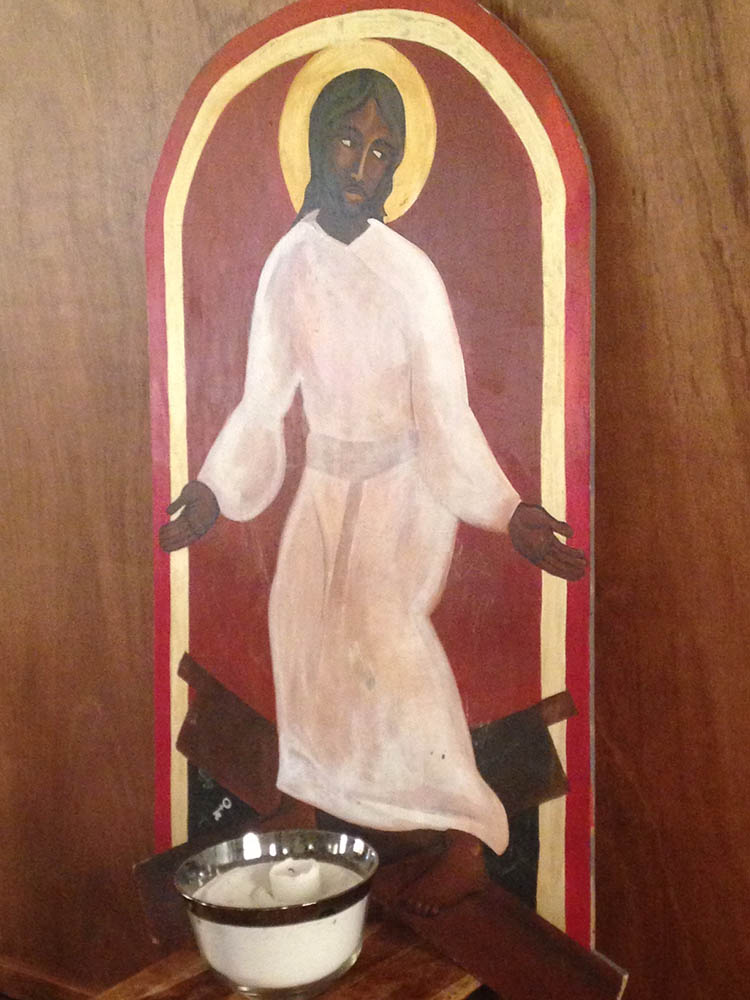
Following Jesus “Now”
by Joel Weir
Priest, St. Stephen the First Martyr Orthodox Church, Crawfordsville, IN
Last week my best friend since elementary school and I met for coffee. As usual we did at least a little reminiscing about “back in the day” (cue “Glory Days” by Bruce Springsteen). We usually touch on some crazy story from high school, or some obscure pop cultural event that “you had to be there” to remember. This time around, though, the topic was a little more serious. I think it sprang from me sharing about my study trip with the Wabash Pastoral Leadership Program to the Pacific Northwest, an area that is considered among the least “religious” places in the country. One of the reasons for visiting this area was to observe how churches and faith communities engaged with what is becoming a trend in our culture – an increase in people, especially young people, identifying as having “no religious affiliation”.
So my friend and I, both raised going to church, and both still going, talked about the differences between “then”and “now”. Back “then” there was a general assumption that most people were connected in some way to a church. Attendance might have varied, but to be completely unaffiliated, or even to have been raised without church being somehow involved was an anomaly. “Then” one could basically assume that most people knew what the Bible was, who Jesus was, and even some fundamental stories and teachings from scriptures (the ten commandments, or Noah’s Ark, for example). “Now” those things cannot be assumed. There is no longer the societal expectation or cultural norm that will bring people through the doors of the church. When considering this, especially in light of what I observed in Seattle, visiting churches and faith communities that are thriving in this “new norm” I think one conclusion I’ve come to is…the “Now” isn’t all bad.
To be clear, of course I want more people, everyone, to hear and receive the saving words of Jesus. But what I think is good about this “new norm” is that it requires followers of Jesus to really know why they believe, and, more importantly, it demands proof with action. It’s a time where belief is not expected or rewarded socially. Perhaps we are increasingly moving towards a place where being a follower of Jesus does not get you more votes, more business, or a bigger congregation. What could be good about this? Here’s the thing. Jesus never promised influence, success, or social acceptance to His followers.
It is why I question the reactive response by some politicians and church leaders to the “new norm” -the one that says we must “fight to get our nation back to the way it was”. I question it because I wonder what “getting it back” means. Is it about Jesus or is it about cultural acceptance and societal dominance? What should the response be, then?
I believe a return to the scriptures, especially the Gospel accounts and the Acts of the Apostles, can help point the way back to the central call of followers of Jesus. My friend and I recalled that while it was ‘easier’ to be a Christian “then”, it was also much easier for the church to become a club, and at worst a club that was defined on what it was as opposed to the other ‘clubs’. In Acts, before Jesus ascends He tells His followers that the Holy Spirit would come to them. His followers ask “will you then restore our kingdom (Israel).” The disciples imagined that things would be back to how they were“then” – in the way they imagined how great it would be if they were in cultural and societal dominance. Jesus must have surprised them when He said “When you receive the Holy Spirit you will be given the ability to be my witnesses in Judea, Samaria, to the ends of the earth!” In other words, it is not “the way things were” that you need to be concerned with. Rather, concern yourself with being a living witness now, in the place where you are, and then it will spread to the ends of the earth. Show people the Good News “Now”. To be His witnesses is to do as He did, bring healing, love, words of life, forgiveness and reconciliation and provision to all, especially those who are hungry, thirsty, poor, outcast, sick, mourning, and imprisoned. Cultural status or societal approval is irrelevant.
In Seattle I saw churches and faith communities working together on this shared task. Perhaps it is because they have to work together that there seemed to be less focus on differences and “who gets the credit”. I saw some wonderful examples of faith in action. If there is skepticism of churches there, it seems to thaw when people see the churches practicing what they preach, especially when it shows real care for the greater community, not just getting people through the doors of the church. The really good news is that I see this here, in our “place”, Montgomery County. The collaborative work of groups like MontCares, and the leadership faith communities have taken on issues like domestic abuse, addiction, and homelessness is exactly what, I believe, the response of followers of Jesus should be in the “Now”.
